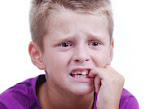"Question: How to help a child with ASD to have enough confidence to engage in activities and with people that are outside his comfort zone?" A common experience among children with ASD level 1, or High-Functioning Autism (HFA), is being overwhelmed in social situations. A child with social anxiety faces sensory overload as well as extreme feelings of nervousness around people. As a result, he or she feels uncomfortable participating in many everyday social situations. Children with social anxiety usually interact easily with parents, siblings, and a few close friends. But noisy crowds, meeting new people, going to new places, or engaging in new and unfamiliar activities can be highly stressful. Instead of enjoying social activities, children with social anxiety dread them — and avoid some of them altogether. Social anxiety can affect an HFA child’s life in many ways. For example, it can keep him or her from reading aloud in class, volunteering an answer in class,...







